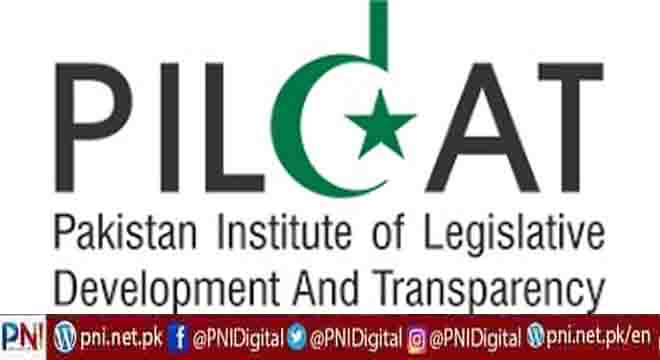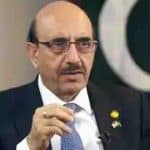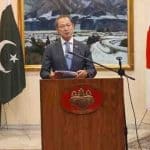LAHORE, Sep 27 (APP): Punjab Finance Minister Mohsin Leghrai said on Tuesday that political workers and voters should become fund raisers in order to bring transparency in the political parties funding.
Addressing a consultative session jointly organized by PILDAT (Pakistan Institute of Legislative Development and Transparency) and UNDP (United Nations Development Programme) on financing of the political parties in Pakistan here, he said political reforms should be made in accordance with prevailing political environment in the country. No law could be effectively implemented until it was based on ground realities.
Leghari stressed the need for strengthening the political parties to strengthen the political system and democracy in Pakistan. “Accountability is vital to strengthen the political parties,” he added.
PILDAT President Ahmed Bilal Mehboob, UNDP Chief Technical Advisor Ali Al-Bayati, the ECP Director General (Political Finance) Masood Akhtar Sherwanee also spoke on the occasion. Besides Finance Minister Mohsin Leghrai of the PTI, the others political party representatives, who joined the discussion, included JUI (Jamiat Ulema Islam) Information Secretary Aslam Ghauri and JI (Jamat-i-Islami) Naib Amir Farid Ahmed Piracha.
Ali Al-Bayati said the UNDP facilitated political stakeholders to develop a common ground on policy reforms by providing a platform such as this consultative forum. He said legal framework and implementation of political finance was a very important and sensitive issue not just for Pakistan but also for every democracy.
Ahmed Bilal Mehboob said the Election Commission of Pakistan’s order of August 2 regarding eight year-long ‘prohibited funding’ case had generated a debate and raised questions about the system of political finance in Pakistan. Similar cases were pending before the ECP about funding of other parties.
He defined that all financial matters dealing with politics and political system came under the realm of political finance, such as political parties’ funding & spending, candidates’ funding & spending, candidates’ nomination form, political parties’ annual accounts, legislators’ annual assets & liabilities statements, political parties election accounts and candidates’ election accounts.
He said legal framework of political finance was defined by Article 17 (3) of Constitution and Elections Act, 2017 Chapter VIII and Chapter XI. However, he added, there had been limitations on effective enforcement of public finance system by the ECP such as on prescribed spending limits, lack of timely and sufficient scrutiny of submitted statements of accounts by candidates, legislators and political parties.
Other key lingering issues were having no spending limit on political parties, diluting of spending limit on candidates in Elections Act, 2017, Sec. 132(5) compared to ROPA Sec. 49(1), non-placement on ECP website of the statements of accounts, assets & liabilities, he said.
Masood Akhtar Sherwanee said every new party had to be enlisted by the ECP based on the Constitution. The ECP had enlisted 156 political parties based on that criteria and allotted 130 symbols. The ECP had scrutinized statements of assets and liabilities of all legislators from 2020-2021 as well as political parties’ forms of same period. Scrutiny of 99 parties had begun based on their annual statements.
The ECP, he said, had indigenously developed software to digitally cover the entire spectrum of information on political finance. It would allow making historical and current data on political finance and make online reporting possible to the ECP and also to integrate it with other data repositories in the country. Artificial intelligence would also be used to process, understand and scrutinize data on political finance.
He said the ECP had also begun field monitoring of electoral expenses to feed into this data. Global Political Finance system rested on Disclosure, Enforcement and Sanction.
Masood added that there might be requirement for a uniform system of accounting software to be used by parties as the law was silent on a standardized form for accounts of parties and candidates.
The consultative session was well attended by members from academia, civil society and politics etc.
Follow the PNI Facebook page for the latest news and updates.









